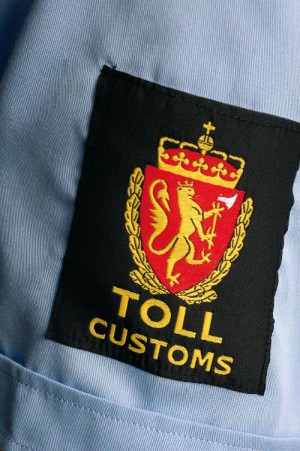The Norwegian Auditor General (Riksrevisjonen) slammed the customs service (Tollevesenet) in a report released on Thursday, saying drugs and money seizures were worryingly low, and the service did not spend enough time and resources on catching major players. Customs hit back on Friday, arguing way more staff were needed to meet the growing demands on the service.

Norway has 138 rail, land, air and sea border crossings, reported Norwegian Broadcasting (NRK). Of these only 90 are manned, and those stations have the fewest staff working when traffic is at its heaviest during weekends and holidays. Despite a significant increase in drug seizures between 2007 and 2013, the report said it was was just a tiny proportion of what’s estimated to be in circulation.
“Customs and Excise should, in its border control, concentrate the resources on uncovering serious offenses to combat organized crime,” aid the Auditor General, Per-Kristian Foss. He said the agency set its performance objectives way too low. “It can appear as if the targets are set based on what the agency is certain to achieve.”
According to the government’s economic crime action plan, there’s been a boom in freight and passenger traffic in and out of Norway in recent years. For instance, there was a 30 percent increase in the number of heavy vehicles passing through the Svinesund toll station near the Swedish border between 2004 and 2012. At Oslo airport, the number of international travelers has doubled since 1999. Meanwhile, the government said smuggling operations were becoming steadily more professional.
Customs needs an overhaul
The report also criticized the agency’s lack of tools, including marketing, information technology, control facilities, scanners and a way to make anonymous tips online. In 1990 Customs received 1,184 tip-offs from the public, but between 2007 and 2012 the service only got between 31 and 49 tips each year.
“If the agency want to receive tips from the public in an effective way, the agency should establish relevant channels and ensure these are known to the public,” wrote Foss.
Finance Minister Siv Jensen acknowledged that stronger, better border control was needed. She said the new structure announced in March meant Customs would work in conjunction with tax authorities, become more streamlined and be given limited police authority.
She noted that the Auditor General’s report made the agency seem like it was not functioning or prioritized, but said that was not an accurate picture. “It is demanding to get an adequate overview of the effect of the administration’s border control, because we do not know how much is smuggled in as a starting point,” Jensen said.
Staff, not restructure
The Eastern Norway Toll Association (Øst-Norge Tollerforening) argued the solution was not a new, streamlined agency, but simply more resources to increase staffing numbers.
“The Auditor General points out what we’ve been saying for a long time, that we must be better able to stop the organized smuggling,” the association’s leader, John Søberg told NRK. “For us, there is one thing that is important, and that is more staff. We know that the number of travelers and the number of customs clearances have multiplied in recent years, but the staffing we have has remained unchanged for about 20 years.”
He said the government’s restructure plans were focused on the wrong part of the process. “The World Bank recently named Norwegian Customs as the world’s best customs agency on industry logistics,” Søberg argued. “And then I find it strange that’s where we will spend lots of money on restructuring, instead of spending money on a real strengthening of border control.”
Søberg said budget considerations limited how many people they could have working during weekends and holidays, when wages were highest.
newsinenglish.no/Emily Woodgate

